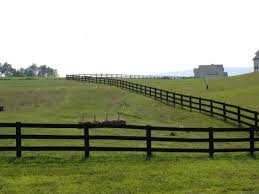记忆方法
1. park => Middle English parrock => paddock.
2. parrock => paddock.
3. porridge => pottage.
4. pad + dock => paddock.
2. parrock => paddock.
3. porridge => pottage.
4. pad + dock => paddock.
中文词源
paddock 养马的小围场
来自中古英语parrock,园子,围栏,词源同park.后引申词义养马的小围场。字母d,r音变,比较meridian,middle.-ock,小词后缀,词源同hillock.
英语词源
- paddock
-
paddock: [17] Paddock is ultimately the same word as park. Their common ancestor was a prehistoric Germanic word which took a route through Latin and French to reach English as park. Its direct Old English descendant, however, was pearruc. This in due course became parrock, which survived dialectally into the 20th century. But in the early modern English period a variant form paddock appeared. It is not clear how this arose, but it may be a hypercorrect form reflecting the change in the opposite direction, from /d/ to /r/, in words such as porridge for pottage and geraway for get away.
=> park - paddock (n.1)
- "a frog, a toad," c. 1300, diminutive of pad "toad," from Old Norse padda; common Germanic (Swedish padda, Danish padde, Old Frisian and Middle Dutch padde "frog, toad," also Dutch schildpad "tortoise"), of unknown origin and with no certain cognates outside Germanic.
- paddock (n.2)
- "an enclosure," 1620s, alteration of Middle English parrock, from Old English pearroc "enclosed space, fence" (see park (n.)). Or possibly from Medieval Latin parricus (8c.), which ultimately is from Germanic.
权威例句
- 1. Vaulting the stile, he headed diagonally across the paddock.
- 翻身跃过栅栏后,他便朝斜穿围场的方向走去。
- 2. The family kept horses in the paddock in front of the house.
- 那户人家把马养在屋前的小围场里。
- 3. Their paddock measures 24 metres square.
- 他们的围场为24米见方。
- 4. I rode bareback to the paddock.
- 我骑着无鞍马来到了牧场。
- 5. He keeps horses in a paddock behind his house.
- 他把马养在屋后的小围场里.
